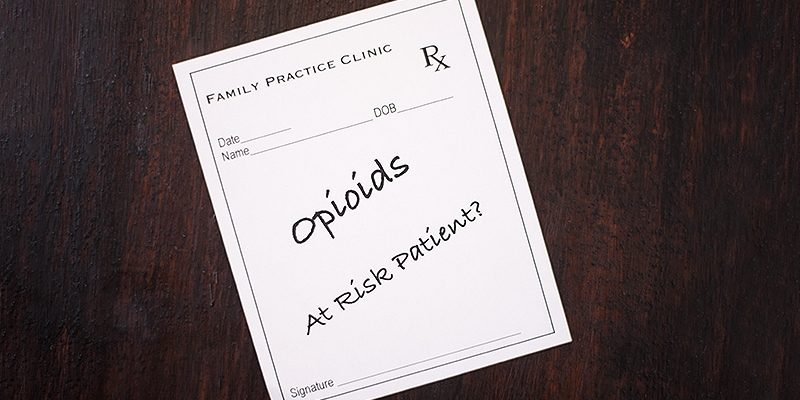Family physicians are almost three times less likely to offer a new patient appointment to a patient with opioid use disorder (OUD), compared with a patient with diabetes, new data from Ontario, Canada suggest.
In a randomized clinical trial that included almost 400 family physicians, those with more than 20 years’ experience were almost 13 times less likely to offer an appointment to a patient with OUD than to a patient with diabetes.

Dr Sheryl Spithoff
“We knew from previous work that we had done here in Ontario, and that people have done in other places, that people with addictions, in particular addictions to opioids, are less likely to have a family doctor or primary care provider,” study author Sheryl Spithoff, MD, MSc, assistant professor of family and community medicine at the University of Toronto, Canada, told Medscape Medical News. “People have given different explanations as to why this may be the case, and we wondered if family doctor discretion in accepting and taking on new patients was playing a role.”
The study was published September 30 in JAMA Network Open.
Generational Differences?
The investigators used an audit design to examine new patient intake at the offices of randomly selected family physicians. Eligible physicians were able to prescribe opioids and practiced within 50 km (31 miles) of a city of more than 20,000 people.
The analysis included 383 physicians who were contacted by a “patient actor” who requested an appointment. On calls with 185 physicians, the actor claimed to have diabetes and to be seeing an endocrinologist. On calls with the other 198 physicians, the actor claimed to have OUD, to be receiving methadone treatment, and to have an addiction physician.
Twenty-one of 185 physicians (11.4%) offered a new patient appointment to a caller with diabetes, and 8 of 198 (4%) offered an appointment to a caller in treatment for OUD (P = .007).
Among physicians with more than 20 years in practice, 1 of 108 (0.9%) offered an appointment to a caller with OUD, and 10 of 84 physicians (11.9%) offered an appointment to a caller with diabetes (P = .001). Family physicians who were women were nearly 5 times less likely (2.7% vs 12.3%, P = .007) to offer an appointment to a patient with OUD, compared with a patient with diabetes.
Spithoff did not explain why women family physicians were more likely to not accept a patient with OUD in their practice, but she speculated that young physicians who are early in their career, in contrast to those who are older and went to medical school years ago, have received more education about OUDs and how to manage them.
“I am thinking we need to do more work to sort out why,” said Spithoff. “One hypothesis is that there is better education and training now around treating OUDs during medical school and residency, and changing societal norms, so that younger physicians are more accepting of patients with addictions and mental health problems, compared with the older generation.”
The findings suggest that education and anti-oppression training are needed to address biases that family physicians may have that may be leading them to exclude a patient with an OUD from their practice, said Spithoff.
“Poverty, life challenges, loss of a job or a relationship are all things that may drive addiction,” said Spithoff. Taking opioids is “something that patients with OUD are often fighting hard not to do, but these other things drive it.”
In addition, the literature shows a strong association between substance use and trauma, childhood posttraumatic stress disorder, and mental health disorders like anxiety, depression, and bipolar disorder, noted Spithoff.
Developing Skill Sets
Commenting on the study for Medscape, Tara Gomes, PhD, MHSc, assistant professor of drug safety at the University of Toronto, and principal investigator of the Ontario Drug Policy Research Network, noted that it was sufficiently robust in its design.

Dr Tara Gomes
“Methodologically, I think that it was as vigorous as it can be with this kind of ‘secret shopper’ approach,” said Gomes. “I think there were a lot of strengths in the design that I saw, such as using the same person who is calling and using a very rigorous script. They presented an alternative, which is someone with diabetes, who likely is going to have other complexities in their care.”
But Gomes echoed the limitation that the investigators cited in the paper, which was that the study was conducted during the COVID-19 pandemic, which may have resulted in low rates of new patient acceptance.
The fact that more experienced physicians were much more reluctant to accept a patient with OUD in their practice may speak to a lack of comfort with managing such a patient, said Gomes.
“My interpretation of this is that perhaps those physicians who have been in practice for longer are less trained on provision of care or feel less prepared,” said Gomes. “It may be that they don’t think that they have the skill set to support [a patient with OUD], whereas I think more recently trained physicians might feel better prepared and able to do that.”
More experienced physicians who are loath to accept patients with OUD in their practice must develop the requisite skill set and confidence to manage these patients, according to Gomes. “In my opinion, that comes back to the physician to develop that skill set and be open to learning more,” she said. “Feeling uncomfortable isn’t enough of a reason to create a barrier to refuse care to this population.”
The study was funded by the Foundation for Advancing Family Medicine, which was established by the College of Family Physicians of Canada. Spithoff and Gomes reported no relevant financial relationships.
JAMA Netw Open. Published online September 30, 2022. Full text
For more Medscape Psychiatry news, join us on Facebook and Twitter
Source: Read Full Article
